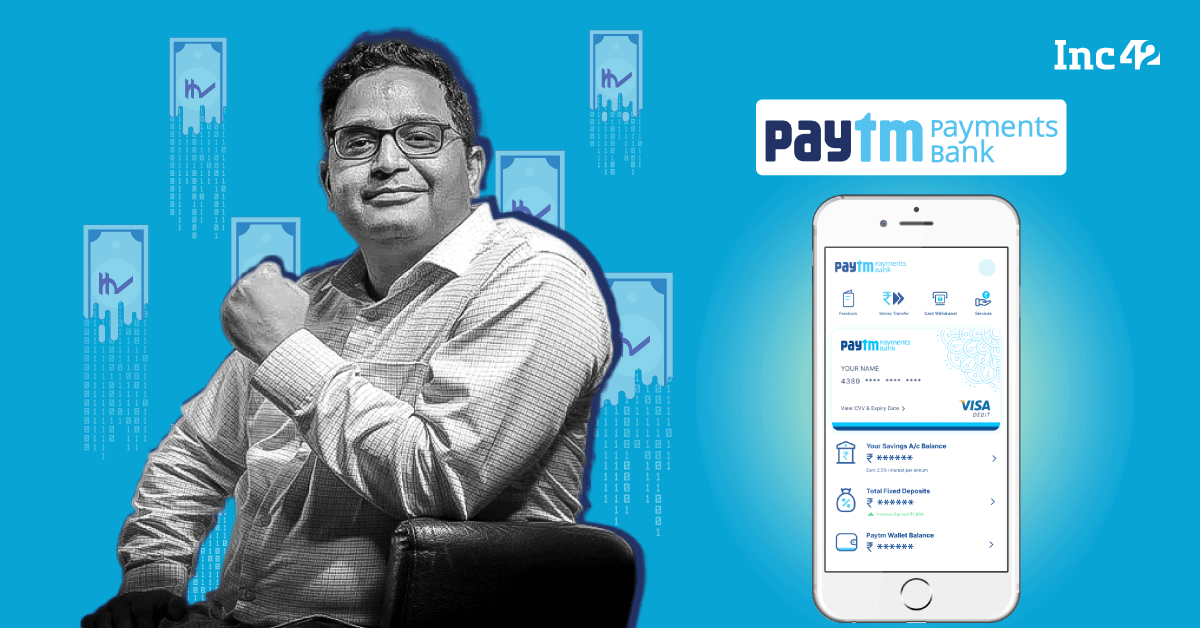SUMMARY
Sharma added that he and other stakeholders from parent One967 Communications has no connection whatsoever with the payments bank
The Paytm CEO also said that the migration of merchant customers to new PSP bank handles has been completed and was running on “Yes Bank backend”
RBI’s directive barring the payments bank from accepting new deposits in its accounts or digital wallets came into effect last month
Fintech juggernaut paytm
Speaking at a webinar while launching the company’s new soundboxes on Monday (April 22), he added that he has no connection whatsoever with the payments bank.
“I, personally or anyone from OCL (Paytm parent One97 Communications), have no connection with the payments bank. There is an independent board. The board is very capable and they are taking care of all process requirements… We trust the board and have full faith in how they are guiding and what steps they are taking next,” said Sharma.
His statement comes a month after the Reserve Bank of India’s (RBI) directive, barring the payments bank from accepting new deposits in its accounts or digital wallets, came into effect. The central bank imposed the restriction in January over non-compliance with existing regulatory norms.
In the aftermath, Sharma stepped down as the non-executive chairman and board member of Paytm Payments Bank to assuage RBI’s concerns.
During the virtual press meet, he also refused any further clarity on the future course of the payments bank, which recently saw the exit of managing director and CEO Surinder Chawla.
Responding to a separate query, he also said that the process of the migration of merchant customers from Paytm to new payment system provider (PSP) bank handles has been completed, adding that the system was running on “Yes Bank backend”.
The Paytm CEO also said that it was the prerogative of the Yes Bank to conduct additional due diligence of these recently migrated merchants.
Earlier on April 17, the fintech said it commenced the process of customer migration to other partner payment service provider (PSP) banks, including Axis Bank, HDFC Bank, SBI and Yes Bank.
“The core business model of Paytm stays the same and the model actually gets amplified now because we are able to work deeper with many other financial institutions and banks owing to these partnerships. In partnership with more banks, it becomes even more scalable and enriched with more revenue opportunities for us,” added Sharma.
The event also saw Sharma launching the fintech’s two new “Made in India” soundboxes, which enable merchants to receive UPI and credit card on UPI payments. The new devices come equipped with 4G network connectivity, better sound quality, longer battery life, and support notifications in 11 Indian languages.
The launches come amid a spate of troubles for the company. Earlier this month, the centre reportedly deferred the approval of fintech giant’s INR 50 Cr investment in its arm Paytm Payment Services over concerns about China-based Antfin’s shareholding in the parent entity.
However, it has taken multiple steps to soothe temperatures of regulators and address their concerns including overhauling the payment bank’s board. Alongside, it has also partnered with PSP banks to keep its services running and shift the nodal account of Paytm Payments Bank to these banks.
Last month, Paytm also became the 25th TPAP licence holder in the country, joining the likes of competitors such as Google Pay, PhonePe, and CRED.
Meanwhile, Paytm shares have lost almost 50% since the start of the payments bank trouble at the end of January. Shares of the fintech closed 0.03% lower at INR 377.80 on the BSE on Monday.
Disclaimer
We strive to uphold the highest ethical standards in all of our reporting and coverage. We StartupNews.fyi want to be transparent with our readers about any potential conflicts of interest that may arise in our work. It’s possible that some of the investors we feature may have connections to other businesses, including competitors or companies we write about. However, we want to assure our readers that this will not have any impact on the integrity or impartiality of our reporting. We are committed to delivering accurate, unbiased news and information to our audience, and we will continue to uphold our ethics and principles in all of our work. Thank you for your trust and support.



![[CITYPNG.COM]White Google Play PlayStore Logo – 1500×1500](https://startupnews.fyi/wp-content/uploads/2025/08/CITYPNG.COMWhite-Google-Play-PlayStore-Logo-1500x1500-1-630x630.png)